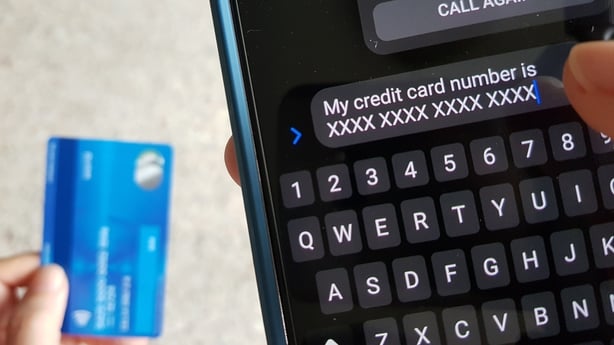People caught up in so-called 'romance fraud' were conned out of almost €2 million last year, as gardaí warn that such schemes happen all year round and not just around Valentine's Day.
Since 2019, at total of €5,923,869 has been stolen in romance fraud, including the case of one woman who reported to gardaí that she had lost €100,000 after she met a man on a dating app who claimed to be working abroad and needed the money.
Gardaí say that 70% of all victims of romance fraud were women and €1,958,089 was stolen in 2022, up 23% on the previous year.
Speaking on RTÉ's Morning Ireland, Garda Detective Chief Superintendent Pat Lordan said that people have lost small amounts of money as well as larger amounts.
He said the criminals involved are organised and prey on people's loneliness.
He said they carry out research and "social engineering" and know what interests a person may have through their posts on social media.
"They know that you're into hill walking, sailing, whatever you're into, and the minute they start talking to you, they will have a storyline drafted out so that they keep you convinced that they are real."
He said these people will rarely if ever meet with the person they are targeting and "they'll rarely, if ever, turn on the camera because there's always a hitch with internet coverage".
Det Chief Supt Lordan said people should be wary of anyone who says they are based abroad, who asks for money to travel to visit you and who encounters problems along that journey, which then means you have to send more money to get them here.
"Stop and think - is this person real? Have you ever seen them on the screen in front of you?
"Because you won't have seen them on the screen in front of you in their natural place, their natural look, their natural chat, because they're working to a storybook to convince you that they are real."
We need your consent to load this rte-player contentWe use rte-player to manage extra content that can set cookies on your device and collect data about your activity. Please review their details and accept them to load the content.Manage Preferences
He said he has seen two different types of romance fraud in the past seven or eight years.
One is where a person transfers a sum of money over several months to a bank account of someone they met online or through a dating app based on an investment opportunity that they are involved in.
But another enticement, he said, is based on the person coming to visit you but say they need money to travel.
Gardaí also say fraudsters will try to get people to send them money to cover emergency medical bills, customs duties or other bills.

In one instance, a woman in her late 40s contacted gardaí to report that she lost €27,000 after meeting a man on social media and believing she was in a relationship with him. She then transferred money to an account as she thought this man was moving to Ireland to start a life with her.
In another case, a man in his 40s forwarded €20,000 to a woman he befriended online, after he was convinced to deal in cryptocurrency.
Gardaí say that romance fraudsters will:
- Try to move communications away from dating websites. They suggest that you move to instant messaging, text or phone calls instead.
- Ask a lot of personal questions.
- Avoid answering personal questions about themselves. The details that they do tell you seem made up or do not reflect reality. For instance, they may say that they are university educated, but their spelling and grammar is poor.
- Try to establish a bond quickly. For example, they may give you an endearing pet name e.g. baby, darling, etc.
- Ask for financial help. They may tell you about money problems in the hope that you will offer to help.
- Ask you to invest in a fraudulent scheme or business.
- Never meet you in person. They will present obstacles and may go as far as making arrangements and cancelling them at the last minute. They may promise to want to see you but offer excuses which delay this, such as financial troubles.
What can you do to protect yourself?
- Use trusted dating websites
- Do not share personal details
- Do not send or receive money
- Think twice before using your webcam
- Trust your instincts
- Do not pay for medical bills, purchase flights, or Visas, pay customs fees or make any payment for them to come to visit you
- Do not invest your money in any 'opportunities' from someone you have met online

